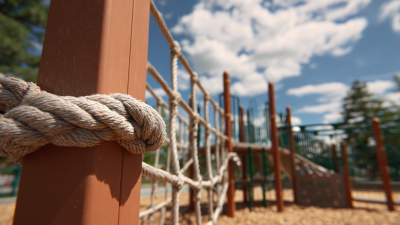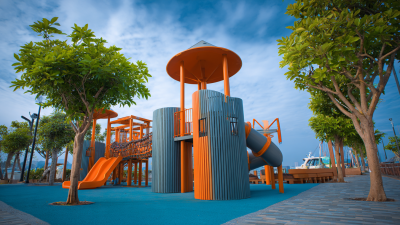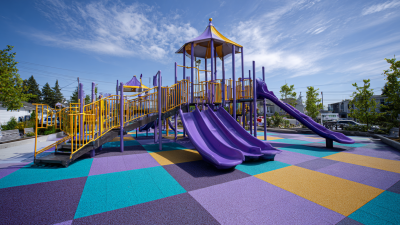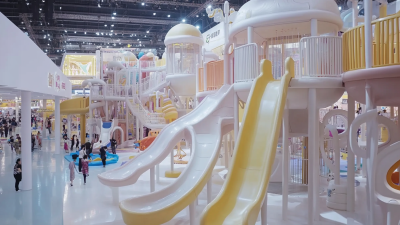
Inquiry
Form loading...
In recent years, the significance of Modern Play Equipment in promoting child development and learning has gained substantial recognition among educators and child development specialists. According to a report by the American Academy of Pediatrics, play is essential for healthy brain development, influencing cognitive, social, and emotional growth.
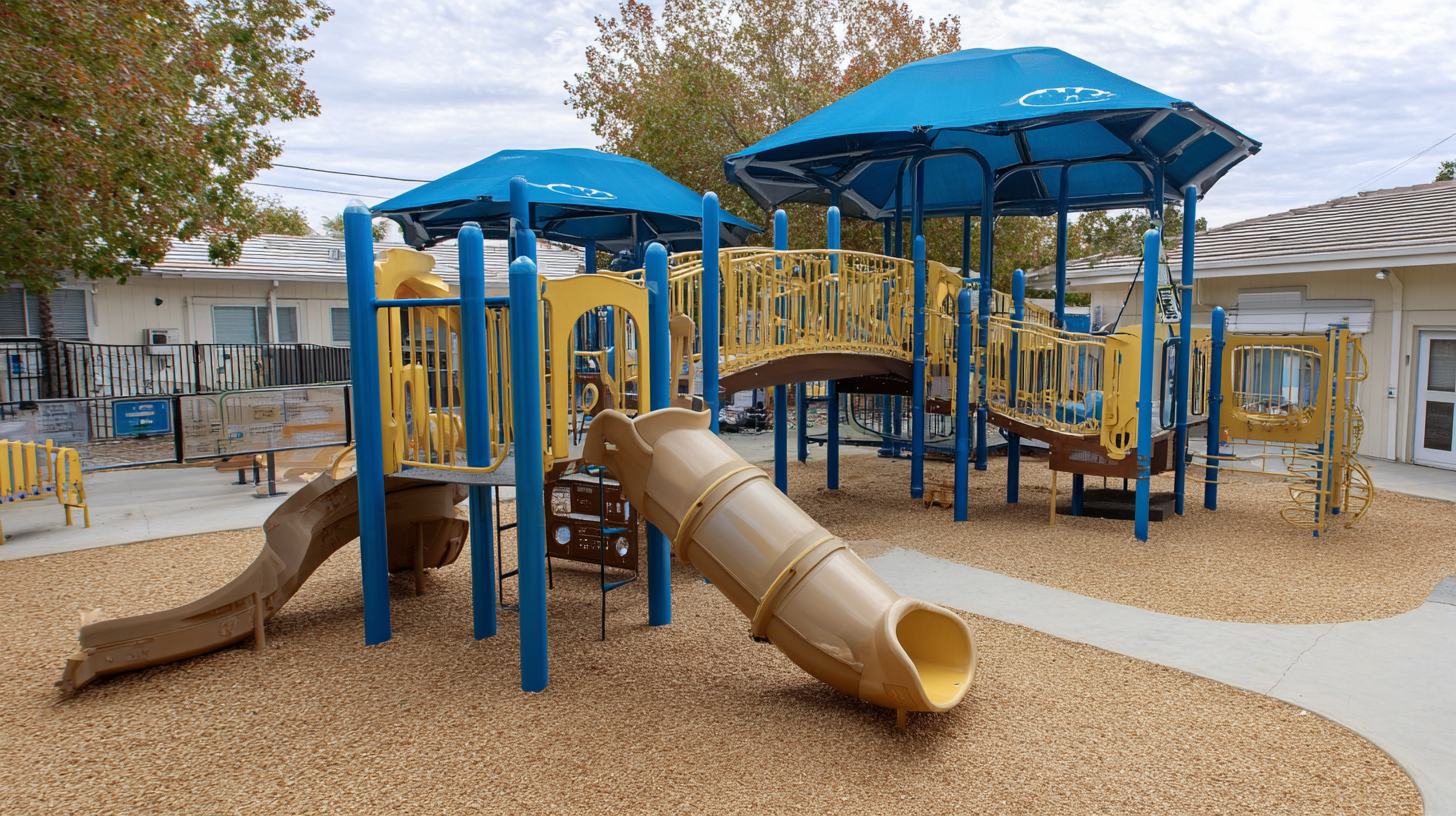 Modern Play Equipment, designed with creativity and safety in mind, can enhance these developmental processes by providing children with opportunities for both structured and unstructured play. A study published in the Journal of Play and Development highlighted that children who engage with interactive play structures are more likely to develop critical thinking and problem-solving skills.
Modern Play Equipment, designed with creativity and safety in mind, can enhance these developmental processes by providing children with opportunities for both structured and unstructured play. A study published in the Journal of Play and Development highlighted that children who engage with interactive play structures are more likely to develop critical thinking and problem-solving skills.
Furthermore, the latest industry data indicates that investment in modern play facilities can lead to increased physical activity and reduced childhood obesity rates, making it crucial for parents and communities to advocate for high-quality play environments. As we explore the benefits of Modern Play Equipment, we will uncover how these innovations can play a pivotal role in shaping the next generation’s learning experiences.
Modern play equipment plays a vital role in enhancing cognitive skills in young children, offering diverse opportunities for exploration and learning. According to a report by the American Academy of Pediatrics, active play is crucial for the development of executive function, which includes problem-solving, memory, and self-regulation. Engaging with innovative playground structures, such as climbing walls and interactive panels, encourages children to challenge themselves physically and mentally, fostering critical thinking and resilience.
Furthermore, a study published in the Journal of Education and Human Development highlights that children who regularly interact with modern play equipment demonstrate improved spatial awareness and mathematical reasoning skills. These play environments stimulate imagination and creativity, allowing children to engage in role-play and collaborative activities, which are essential for social-emotional development. By incorporating elements of STEM (science, technology, engineering, and mathematics) into play, modern equipment equips children with fundamental skills that will benefit their education in broader contexts.
| Play Equipment Type | Cognitive Skill Enhanced | Age Range | Benefits |
|---|---|---|---|
| Climbing Structures | Spatial Awareness | 2-6 years | Improves balance, coordination, and problem-solving skills. |
| Interactive Play Panels | Critical Thinking | 3-7 years | Encourages exploration, curiosity, and cognitive skills through sensory play. |
| Sand and Water Play Stations | Scientific Thinking | 1-5 years | Promotes experimentation, control, and understanding of cause and effect. |
| Role-Playing Equipment | Social Skills | 3-8 years | Fosters communication, collaboration, and emotional understanding. |
| Balance Beams | Focus and Concentration | 4-8 years | Enhances concentration, physical coordination, and body awareness. |
Physical play is essential for children's motor skill development and overall health. Research by the American Academy of Pediatrics indicates that children who engage in regular physical activities show significant improvements in motor skills such as running, jumping, and coordination. According to a study published in the Journal of Physical Activity and Health, children aged 6 to 12 years who participated in structured playtime demonstrated a 20% increase in their fundamental movement skills compared to their peers who spent less time in active play.
Moreover, modern play equipment plays a crucial role in facilitating these physical activities. With the introduction of innovative playground designs that emphasize inclusive and diverse play options, children are more likely to engage in activities that challenge their physical capabilities. The Centers for Disease Control and Prevention (CDC) highlights that active play not only enhances physical health by combating obesity but also supports cognitive development and social skills. As such, the impact of physical play is multifaceted, contributing significantly to a child's growth and wellness in their formative years.
Modern play equipment is designed not only to enhance physical activity but also to facilitate social interaction among children. By incorporating features that encourage group play, such as climbing structures and interactive panels, children naturally develop communication skills as they engage with their peers. These collaborative play activities require them to express their ideas, negotiate roles, and resolve conflicts, which are essential components in building effective communication.
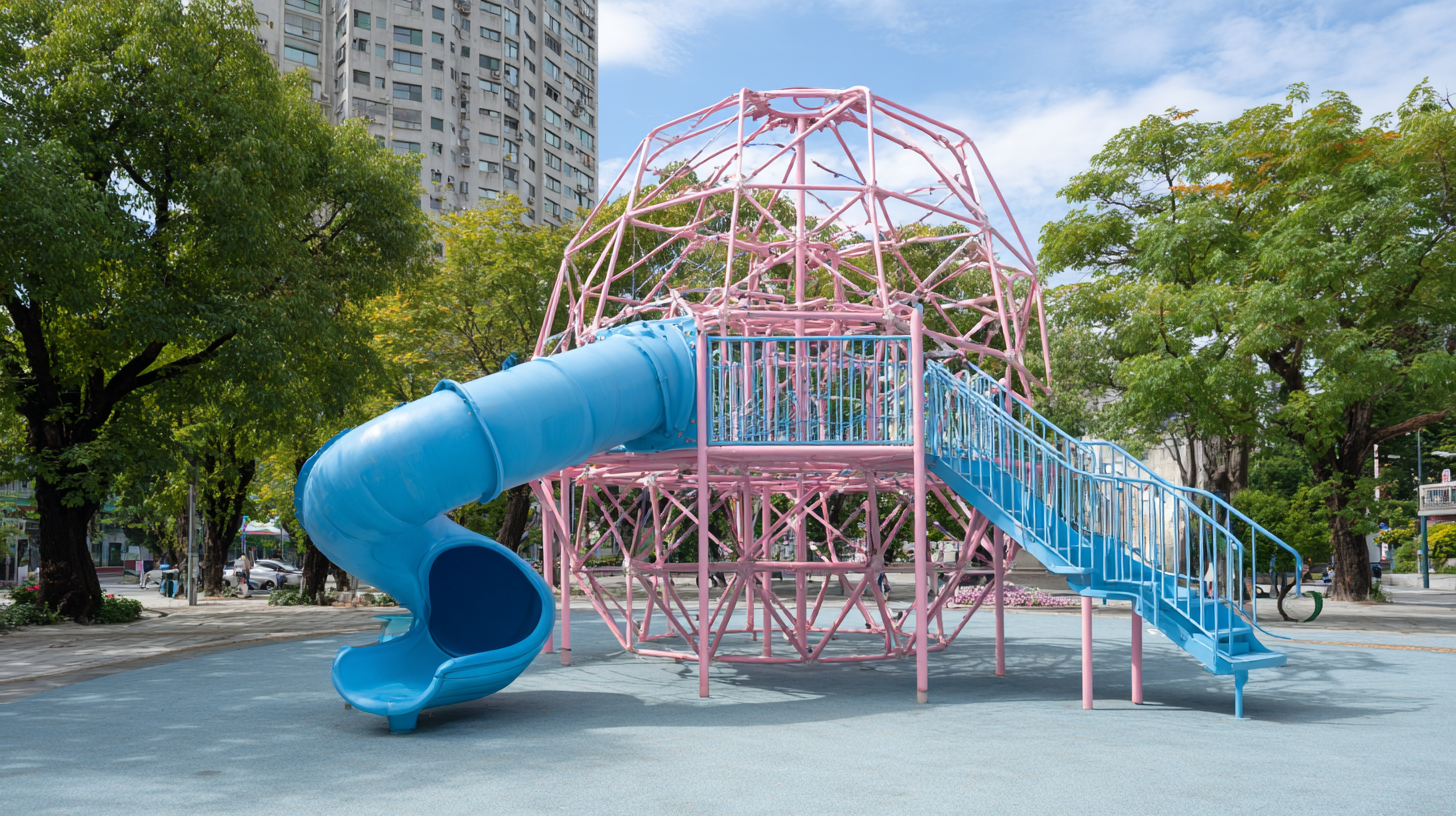
Furthermore, the diverse range of modern play equipment provides children with various opportunities to interact with others in a dynamic environment. For instance, equipment that incorporates games or challenges invites cooperative play, prompting children to work together towards common goals. This interaction not only strengthens their verbal skills but also enhances their ability to read social cues and react appropriately in group settings.
As they navigate these social situations, children learn the value of teamwork, developing confidence and empathy in the process. Through such engaging experiences, modern play equipment becomes a vital tool in nurturing communication capabilities that will benefit children throughout their lives.
The integration of technology into play has opened new avenues for enhancing child learning and development, but it also brings certain risks that must be carefully managed. According to a report by the American Academy of Pediatrics, children aged 2 to 5 should have no more than one hour of screen time per day, emphasizing the need for a balanced approach. When used appropriately, technology can facilitate interactive experiences that stimulate critical thinking and problem-solving skills. For instance, studies show that children who engage with educational games exhibit improved cognitive skills compared to those who do not.
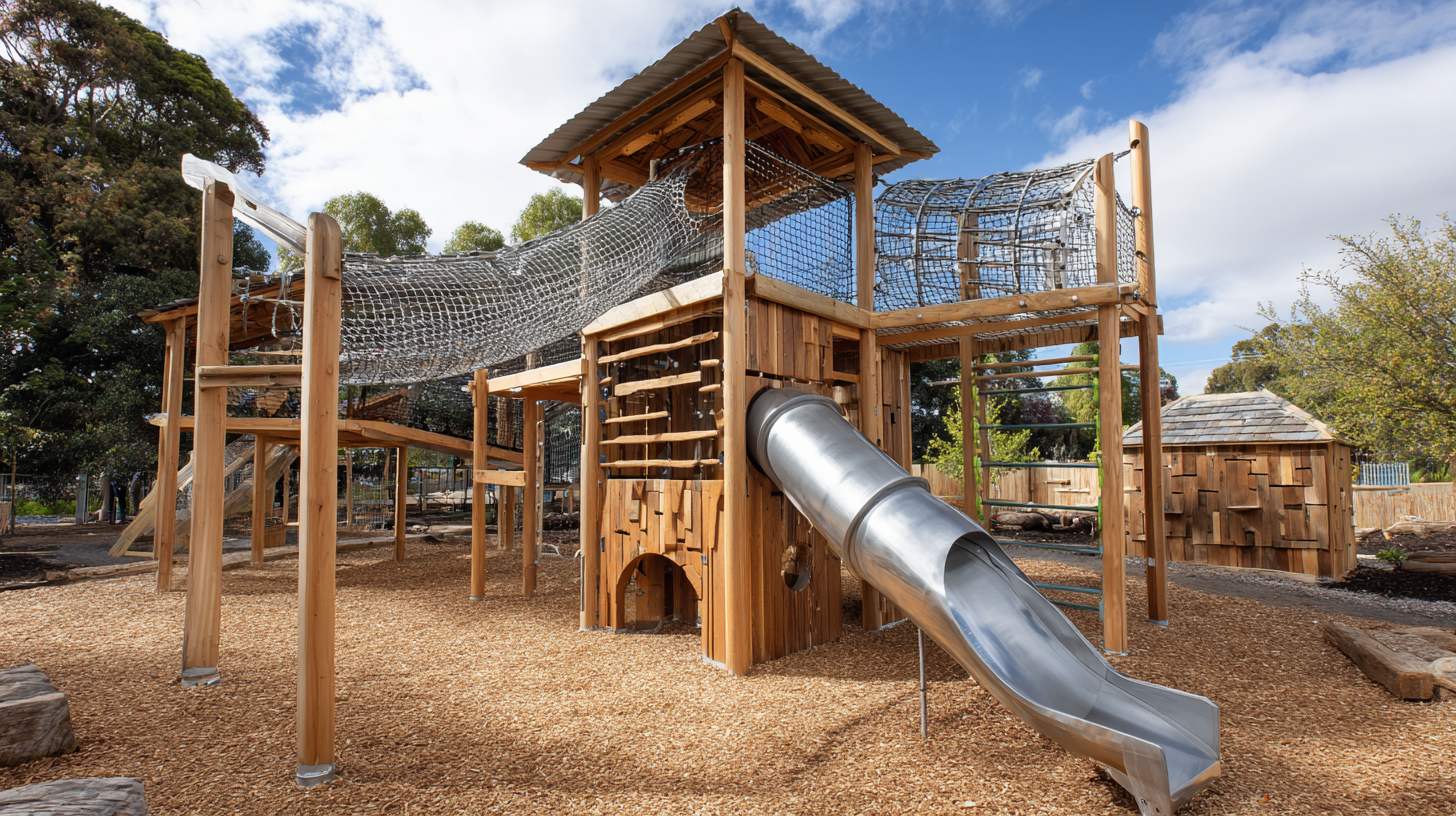
However, overexposure to technology can also lead to negative consequences, such as decreased physical activity and impaired social interaction. A survey conducted by the Joan Ganz Cooney Center indicates that 64% of parents are concerned about their children’s media habits and the subsequent impact on their development. As we incorporate advanced play equipment that includes technology, it is crucial to set boundaries and foster environments where digital play complements traditional play. By maintaining this balance and encouraging collaborative technology use, we can harness the benefits while mitigating the risks associated with modern play equipment in child development.
The impact of outdoor play structures on children's academic performance and behavior has become a focal point for educators and parents alike. Research indicates that children who engage in regular outdoor play are more likely to excel academically. A study by the American Academy of Pediatrics found that students who participate in outdoor activities show a 20% increase in problem-solving skills and a significant improvement in their ability to focus in the classroom. This is primarily due to the physical and cognitive challenges presented by modern play equipment, which promotes critical thinking and coordination.
Moreover, the long-term behavioral benefits of outdoor play cannot be overlooked. According to the Centers for Disease Control and Prevention, children who have access to structured outdoor play are less likely to exhibit behavioral problems such as aggression and impulsivity. A longitudinal study published in the journal "Child Development" highlighted that children with regular access to play structures demonstrate enhanced social skills and cooperative behavior, leading to a more positive learning environment. By fostering peer interactions and encouraging teamwork, modern play equipment serves not only as a tool for physical development but as a catalyst for nurturing well-rounded, academically inclined children.
